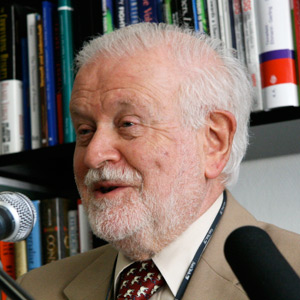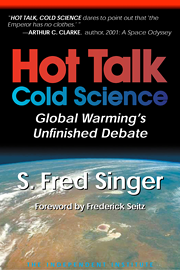Evidence suggests that much of our concern about global climate change—and calls for government action—may be misplaced. No matter what we do, climate will continue to change, as it always has, warming and cooling periodically for various reasons. We are not in the midst of a crisis.
This is not to say we don’t face a serious problem. But the problem is political: Because of the mistaken idea that governments can and must do something, pressures are building for new energy policies that could severely damage national economies, decrease living standards and increase poverty.
If not for such threats, one might consider climate change concerns little more than a new environmentalist fad, like the Alar apple scare or the “new Ice Age” fears of the 1970s. With so much at stake, however, it’s essential to understand the issue better.
The most fundamental question is scientific: Is the observed warming of the last 30 years naturally occurring or are human activities partly responsible?
At first glance, it seems plausible that humans could be responsible for global warming. Burning fossil fuels releases large quantities of carbon dioxide into the atmosphere. The carbon-dioxide level has increased steadily since the industrial revolution and is now 35 percent higher than 200 years ago. We know from direct measurements that carbon dioxide is a “greenhouse gas,” which strongly absorbs infrared (heat) radiation. So the idea that burning fossil fuels causes an enhanced greenhouse effect should be taken seriously.
But to understand warming, we also must consider the natural factors that have warmed the climate since the beginning of time. After all, the geological record shows a persistent 1,500-year warming and cooling cycle extending back more than a million years.
Climate change theorists have their own evidence, such as melting glaciers and shrinking sea ice. But merely observing such phenomena doesn’t prove that industrial activities are responsible. Any warming, natural or manmade, will melt ice. To assert that melting glaciers prove human causation is bad science.
What about the fact that carbon-dioxide levels are increasing at the same time temperatures are rising? That’s an interesting correlation, but correlation is not causation.
During much of the last century, the climate was cooling while carbon-dioxide levels were rising. Moreover, while the rhetorical heat certainly has increased, the climate has not warmed in the last eight years, despite greenhouse gas increases.
What about the fact that about two dozen major greenhouse computer models show large temperature increases due to burning fossil fuels?
Fortunately, there is a scientific way to test these models: comparing the actual warming pattern with the pattern predicted by the models to see if the “fingerprints” match.
But they don’t match.
Why then do greenhouse models predict temperature increases significantly larger than actual increases? The answer lies in the Earth’s atmosphere. Along with carbon dioxide, the atmosphere contains water vapor, the most powerful greenhouse gas of all. All the climate models calculate a significant “positive feedback” from water vapor—meaning that water vapor amplifies the effect of carbon dioxide increases. The evidence appears to show the opposite: that the water-vapor feedback is negative, reducing the effect of increased carbon dioxide.
Other natural factors—including continental drift, changes in the Earth’s orbit, volcanic eruptions and solar variability—also influence climate. It’s not as simple as some would have us believe.
The world faces many difficult problems: poverty, disease, poor sanitation and potable water shortages. There are grave security problems arising from terrorism and nuclear weapons proliferation. These problems are vastly more critical than worries over “man-made” global warming.
Perhaps in a decade or two this will become apparent, particularly if the climate starts cooling again, or temperatures continue to hold steady, as they have for the past eight years.
Until then, we can only hope that reason will prevail, despite the incessant misinformation reported uncritically by the media and in propaganda instruments like former Vice President Al Gore’s movie “An Inconvenient Truth.”
The inconvenient truth is that the alarmists are wrong. That’s bad news for them, but good news for everyone else.









